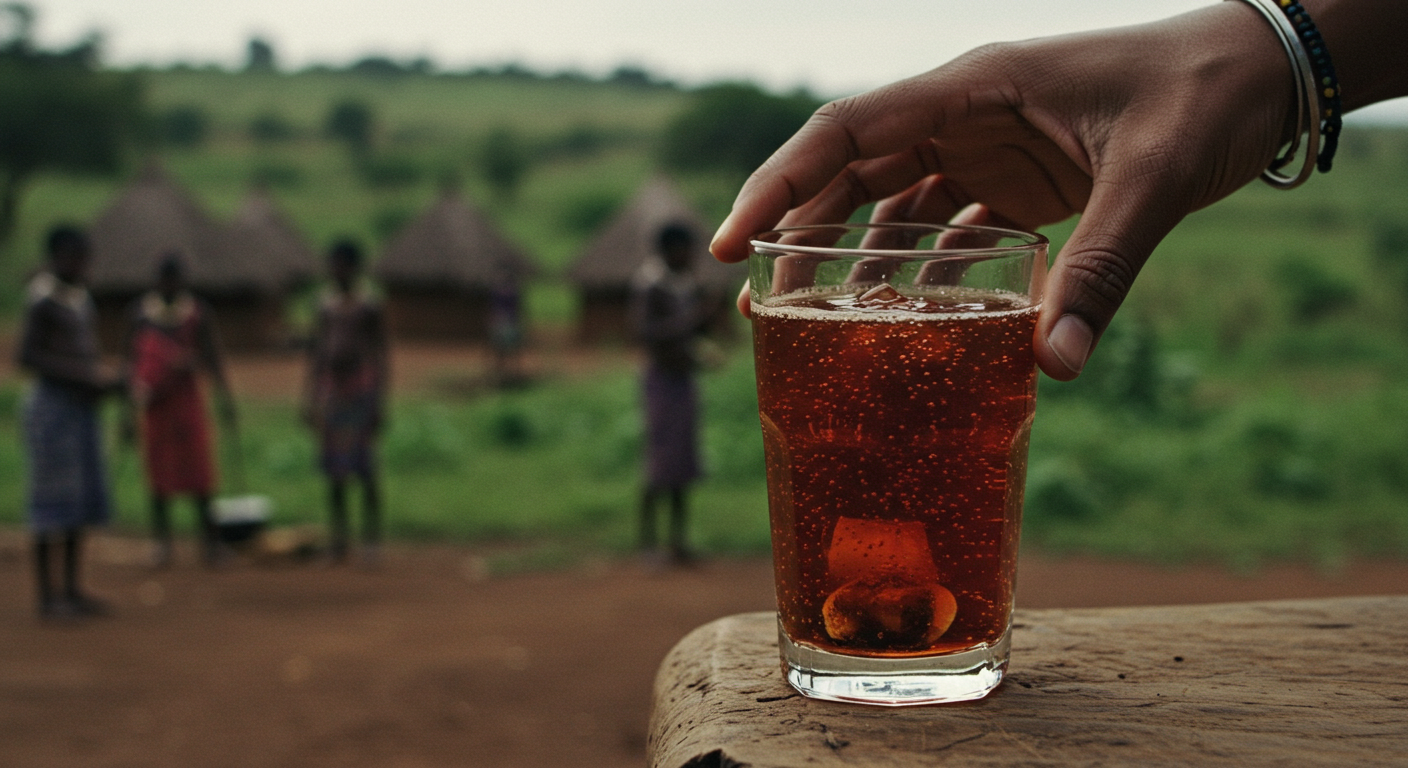In the age of kombucha and kefir, gut health has become a cornerstone of modern wellness. But long before the West popularized probiotic-rich drinks, Africans were brewing nutrient-dense, fermented beverages from local grains, fruits, and herbs. These traditional drinks are not just culturally significant—they’re microbiome superstars.
Understanding the Gut Microbiome
The gut contains trillions of bacteria, fungi, and other microbes that affect digestion, immunity, mental health, and even weight. A balanced microbiome can reduce inflammation, prevent disease, and improve energy levels. Fermented foods and drinks are one of the best ways to nurture this internal ecosystem.
Traditional African Fermented Drinks
Africa’s fermented beverages vary by region, but many are made through wild fermentation, where natural yeasts and bacteria transform sugars into probiotics.
Here are some of the most iconic:
Kunu (Nigeria)
Made from millet, sorghum, or tiger nuts, kunu is lightly sweet, tangy, and spiced with ginger or cloves. Its fermentation process produces beneficial lactic acid bacteria.Togwa (Tanzania)
A porridge-like drink made from maize, millet, or sorghum. It’s rich in fiber, B-vitamins, and probiotics.Bushera (Uganda)
Fermented from millet and served cold, this drink is rich in minerals and gut-friendly bacteria.Palm Wine (Widespread)
Though alcoholic, palm wine contains natural yeasts and lactic acid bacteria when fresh. It is often used ceremonially and socially.Fermented Baobab Water (West Africa)
Baobab pulp soaked and fermented in water makes a tangy, slightly thick drink loaded with vitamin C and prebiotics.Ogi (Nigeria & Ghana)
A fermented maize or sorghum pudding that doubles as a weaning food and adult breakfast. Its sour taste signals the presence of Lactobacillus species.Injera (Ethiopia)
Though a solid, injera is made from fermented teff flour. It functions similarly to sourdough bread in gut support.
Scientific Evidence Behind Fermented Drinks
Several studies have confirmed the presence of beneficial bacteria like Lactobacillus plantarum, Leuconostoc mesenteroides, and Saccharomyces cerevisiae in these traditional brews. These microbes:
Promote better digestion and nutrient absorption.
Enhance immune responses.
Regulate bowel movements.
Protect against pathogens like E. coli.
Fermented grains also reduce anti-nutrients like phytic acid, improving mineral bioavailability.
Gut Health Benefits from African Fermented Beverages
Improved Digestion: The enzymes and acids in fermented drinks break down starches and lactose, easing digestion.
Balanced Microbiome: Consuming local probiotic drinks introduces diverse microorganisms into the gut.
Immune Strengthening: Up to 70% of immune function originates in the gut. A well-fed microbiome improves defense mechanisms.
Mood and Mental Health: The gut-brain axis links intestinal bacteria to neurotransmitters like serotonin. African fermented drinks may support emotional balance.
Prevention of Chronic Illness: A healthy gut reduces inflammation, a root cause of obesity, diabetes, and cardiovascular disease.
Reclaiming the Narrative
In a time when African diets are being displaced by imported sodas, juices, and fast foods, reintroducing indigenous fermented beverages is both a health and cultural imperative. Many African nutritionists and chefs are now offering workshops on homemade kunu, ogi, and bushera as alternatives to processed gut-damaging drinks.
Practical Tips for Modern Use
DIY Fermentation: Encourage communities to learn traditional fermentation techniques at home.
Flavor Adaptation: Mix in pineapple, hibiscus, or mint for broader appeal.
Nutrition Integration: Pair fermented drinks with high-fiber meals or plant-based dishes.
Mindful Consumption: Like in ancestral times, consume slowly and with intention.
Conclusion: The Gut Remembers
African fermented drinks do more than heal the stomach—they connect us to ancestral practices, communal living, and nature’s slow alchemy. In the quest for better gut health, Africa’s ancient brews offer a way forward—rooted in rhythm, ritual, and resilience.



